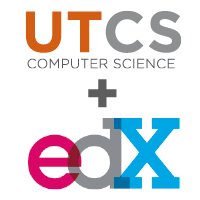
On January 25, 2017, UTCS faculty (and spouses) Robert van de Geijn and Maggie Myers will kick off the fifth run of their 16 week MOOCs (Massively Open Online Course) on linear algebra from a computer science perspective called Linear Algebra - Foundations to Frontiers (LAFF) Robert and Maggie have enhanced the course by working with MathWorks to enable participants to use Matlab freely during the course.
The Linear Algebra - Foundations to Frontiers which offers a verified certificate of completion for a small fee or is free audits, was launched by edX, UT’s non-profit partner which manages MOOCs in January of 2015.
By linking the theory of linear algebra to issues that arise when implementing high-performance software libraries, the course content connects the mathematics to issues encountered in computer architecture, software engineering, and program correctness. The course builds on ongoing research by the instructors on how to develop and implement high-performance linear algebra libraries, funded by the National Science Foundation, so that the participant is simultaneously exposed to introductory material and the cutting edge of the field.
In reviewing this course, one student wrote:
"This course operates at three levels, I think. First, it helps you get some important principles around computational science and why efficient algorithms are fundamental to computation. Second, it gives you the rationale, foundations, and logic about the principles of matrix manipulation. And third, certainly not least, you get to learn the mathematics and specific practical skills to work with matrices and linear algebra."
Later in the spring, on April 11, 2017, Robert and Maggie launch a new MOOC, LAFF-On Programming for Correctness, which presents goal-oriented programming the way Edsger Dijkstra intended. The course shows how to make the formal derivation of algorithms practical for a broad class of matrix operations and will leave you pondering how results extend to other domains.



